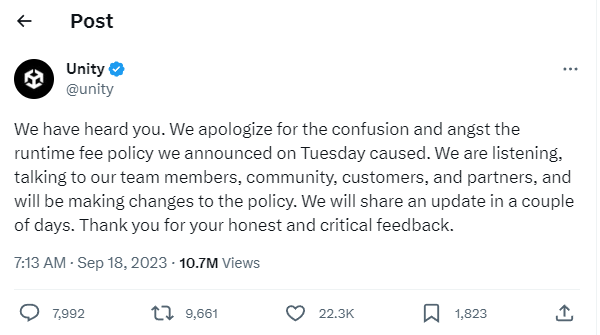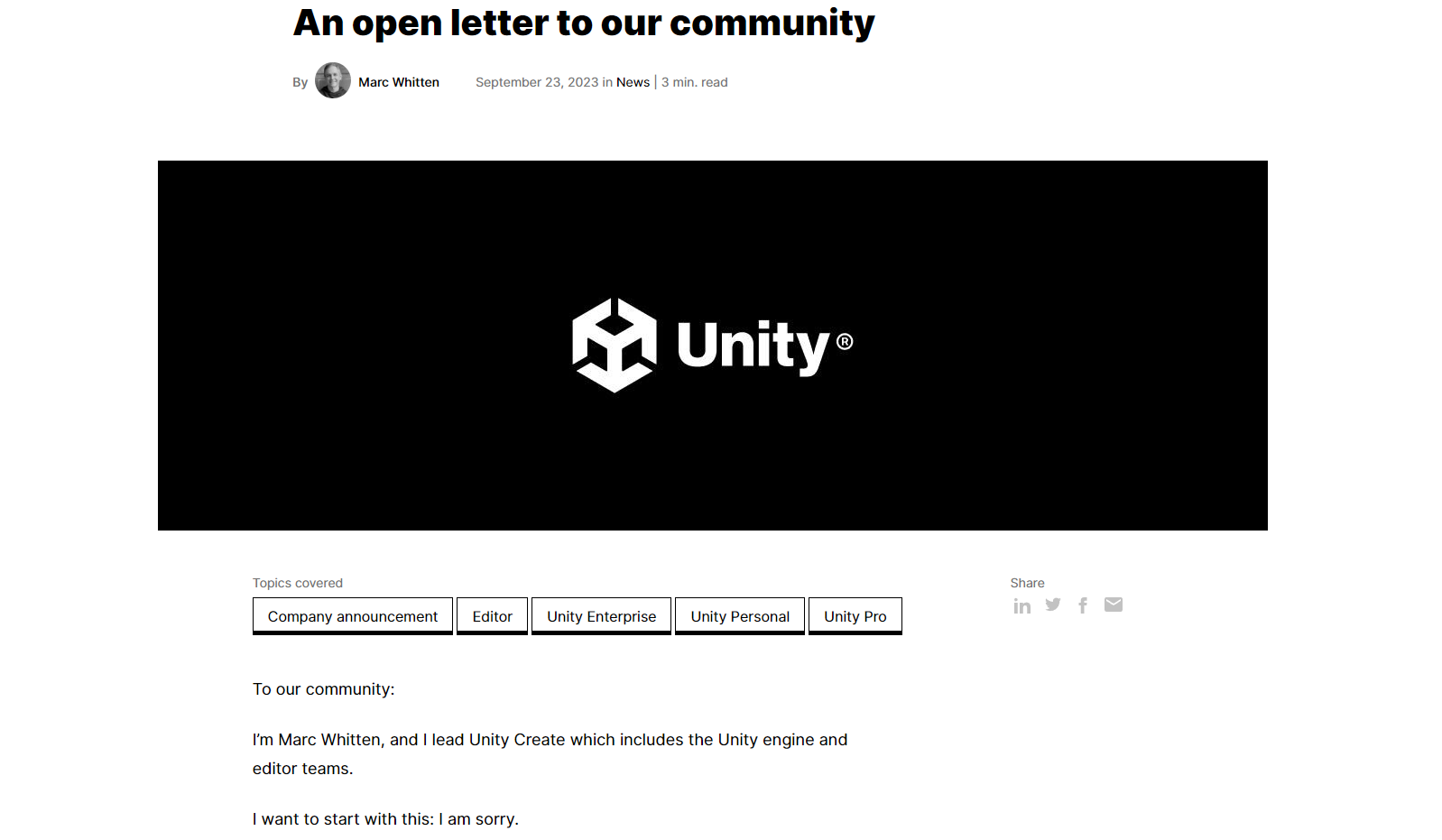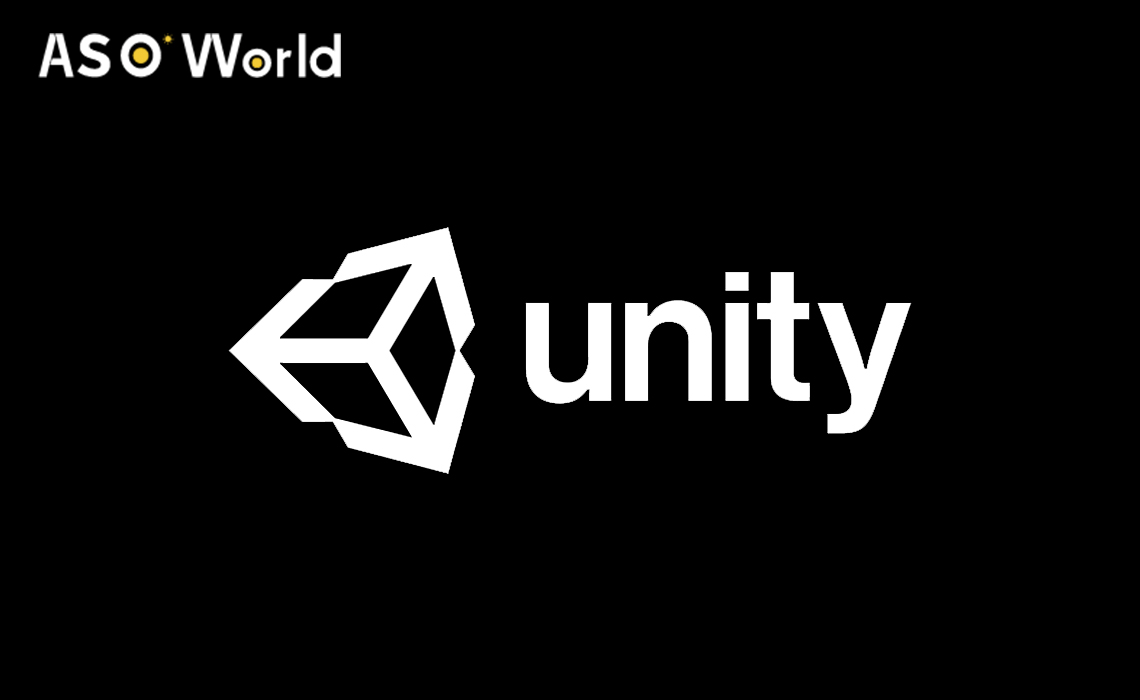Unity, a leading game development platform, has unveiled a significant pricing and packaging update set to take effect on January 1, 2024.
The major change is the introduction of the Unity Runtime Fee, which will be based on the number of game installs. This fee will apply to games that meet specific revenue and install thresholds.
Unity Pro and Unity Enterprise subscribers will benefit from volume discounts that reduce the per-install cost as their games grow. This pricing structure takes into account the variability of game monetization across different regions.
Unity claimed that its intention is to allow creators to keep the ongoing financial gains from player engagement, rather than implementing a revenue-sharing model.
However, lots of game developers complained about this pricing change. It was concerned that year-end promotions or the Game Pass subscription service may lead to a surge in installations, resulting in additional costs, while repeated installations on different devices can also lead to cost increases.
Now some developers decided to switch to competitors to Unity, like Unreal Engine and Godot Engine..
Later on, Unity clarified several points:
- Installing, uninstalling, and reinstalling on the same device will only incur a single charge, but installing on different devices will result in multiple charges.
- For subscription services like Game Pass, fees are collected from publishers (e.g., Microsoft).
- Standalone game demos will not be charged, but versions like early access will incur fees.
Unity's executive, Marc Whitten, estimated that only about 10% of developers would need to pay additional fees.
Unity's announcement was somewhat ambiguous, as it used terms like "Monthly rate" in the billing standards table, but the intention was to charge installation fees on a monthly basis, not to bill every installation monthly.
Furthermore, they made some emergency updates to their pricing policies following developer criticism, and it all seemed somewhat impromptu.
[Updated on September 18th, 2023]
Unity's Apology on X (Twitter)

Unity has issued an apology on X (Twitter) and promised changes in response to the backlash over its proposal to charge per-install royalties.
After initially standing firm, the company now acknowledges the need for adjustments to the policy following feedback from the community, customers, and partners. Details of the revised policy will be shared in the coming days.
[Updated on September 19th, 2023]
Unity is reportedly making tentative revisions to its proposed fee changes following significant backlash.
According to reports, under the new plan, Unity will limit fees to 4% of a game's revenue for customers earning over $1 million, with installations not retroactively counted toward the threshold.
The company is currently seeking feedback from partners before officially announcing these changes.
Notably, Unity has also decided to rely on users to self-report installation data instead of using proprietary tools. The company aims to generate more revenue from its largest customers while reassuring over 90% of Unity users that they won't be affected. Executives acknowledge the need to rebuild trust through actions rather than words and improve future communications.
[Updated on September 23rd, 2023]

Unity issued a public apology in its website on September 23 and announced the revised terms:
there will be no runtime fee for games developed with the current version of Unity, only affecting developers adopting the 2024 version.
Unity Personal remains free, and the revenue threshold for upgrading has been raised to $200,000, with further options above $1 million.
While these changes address most concerns, Unity's handling of the situation has eroded trust in the community, leaving some developers cautious about the company's future actions and considering alternative platforms.

